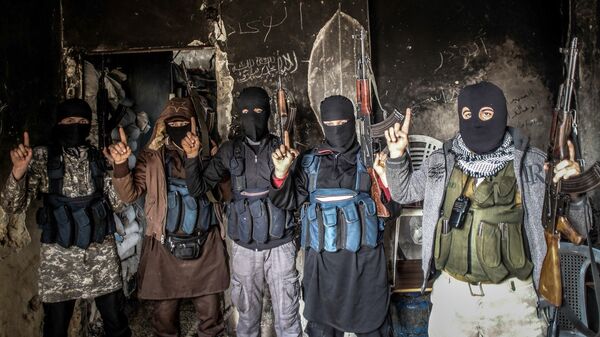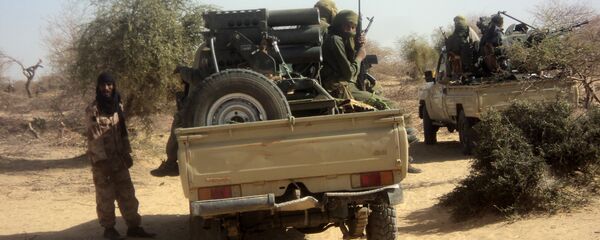Challenging the Caliphate
Despite the fact that radical Islamists have in the past years gravitated towards Daesh, al-Qaeda remains a strong brand on the strength of the 9/11 attacks in New York and Washington and its late leader who is still a more familiar name than Daesh leader Abu Bakr al-Baghdadi.
In a competition with Daesh for recruits and clout across the Middle East, al-Qaeda has sought to distinguish itself from its rival's bloodthirstiness, taking an approach that in jihadi circles would be considered pragmatic. It is building alliances with local players, even old enemies, to seize new territory.
Besides, unlike Daesh, al-Qaeda has no vertically-integrated structure or any particular base anywhere, which makes its destruction almost a mission impossible.
In Syria the al-Nusra Front is fighting on al-Qaeda’s behalf and poses a serious military and ideological challenge to Daesh.
On the battlefield al-Nusra sticks to pinpoint strikes by suicide bombers, while Daesh prefers large-scale military operations.
Yemen on Fire
Al-Qaeda maintains a very strong foothold in Yemen in the form of al-Qaeda in the Arabian Peninsula (AQAP). It emerged in 2009 after local Islamists and their brethren from Saudi Arabia joined forces against the common enemy.
Even though AQAP has suffered a series of defeats from the Yemeni armed forces, the terrorists are now rebuilding their quasi-state and arming local Sunni tribes to take on the Shiites.
Black Jihadists in Africa
Al-Qaeda is no stranger to the African continent with operations in Sudan, Nigeria, and Somalia, most notably through the militant group Al-Shabaab.
As a growing number of local militant groups sign on to al-Qaeda's ideology in sub-Saharan Africa, the continent is fast becoming the war on terror's newest front line.
Strategic Defense
“I think that al-Qaeda is even more dangerous than Daesh. With the world nations attention now focused on flushing out Daesh, al-Qaeda has quietly been spreading its influence across the Middle East and regaining its previous strength,” Yuri Barmin, a Moscow-based foreign policy expert, told Lenta.ru.
Andrei Chuprygin, another expert on the Middle East, was equally skeptical about the prospects of defeating the notorious terrorist organization.
“The only way you can destroy al-Qaeda is by getting all nations to work as one, but I see no such intention at all,” he said.
“They are still unable to clinch an agreement on Syria, but fighting al-Qaeda is harder than fighting Daesh because it has no particular territory you can strike at,” the expert added.



